Unveiling the World of Sunflower Seeds: A Nutrient-Packed Delight
When it comes to snacking, sunflower seeds often take the backseat to more popular choices. However, these tiny powerhouses are more than just a casual munch.
In this article, we delve into the world of sunflower seeds, exploring their calorie count, benefits, origin, and potential disadvantages. So, grab a handful of these golden nuggets, and let’s uncover the secrets within.
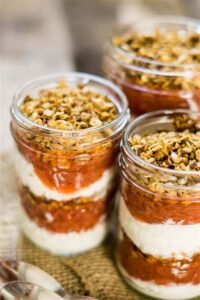
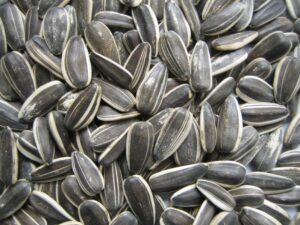
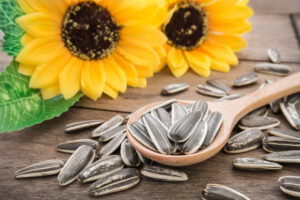
The Crunchy Countdown: Sunflower Seeds and Caloric Content
** Caloric Breakdown: What to Expect from 1 oz of Sunflower Seeds
Sunflower seeds, weighing in at approximately 1 oz, pack around 160 calories. This makes them a moderate-calorie snack option that can be easily incorporated into your daily diet without tipping the scale.
** Nutrient Bonanza: The Benefits of Sunflower Seeds
Moving beyond the caloric count, let’s explore the nutritional perks sunflower seeds bring to the table.
A. Rich in Essential Nutrients
Sunflower seeds are a nutritional goldmine, boasting a mix of essential nutrients. They are a stellar source of vitamin E, a powerful antioxidant that supports skin health and immune function. Additionally, these seeds offer a healthy dose of magnesium, selenium, and various B vitamins.
B. Heart-Healthy Fats
Not all fats are created equal, and sunflower seeds contain the good kind. With a high content of unsaturated fats, these seeds contribute to heart health by helping to lower bad cholesterol levels.
C. Fiber-Fueled Goodness
Sunflower seeds are also a fantastic source of dietary fiber, aiding digestion and promoting a feeling of fullness. This makes them an excellent choice for those looking to maintain a healthy weight.
The Origin Story: Where Do Sunflower Seeds Come From?
**3. Sunflowers: A Brief Exploration of Origins
Sunflower seeds, as the name implies, come from sunflowers (Helianthus annuus). These vibrant yellow blooms are native to North America but have found their way into cultures worldwide.
**4. Cultivation and Harvesting: From Field to Snack
Sunflower seeds are cultivated in large fields, and their journey from flower to snack involves careful harvesting and processing. The seeds are typically encased in the sunflower’s familiar disk florets, and once matured, they are plucked, dried, and ready for consumption.
Dissecting Disadvantages: Are There Any Drawbacks to Sunflower Seeds?
** Cautionary Notes: Potential Disadvantages of Sunflower Seeds
While sunflower seeds offer a myriad of benefits, it’s essential to be aware of potential drawbacks.
A. Caloric Density
Despite their nutritional value, sunflower seeds are calorie-dense. Consuming large quantities regularly may contribute to an excess of calories, which can lead to weight gain if not accounted for in your overall diet.
B. Allergies and Sensitivities
Individuals with seed allergies or sensitivities should approach sunflower seeds with caution. Allergic reactions may include itching, swelling, or more severe symptoms, necessitating immediate medical attention.
Potential Candidates to Avoid Sunflower Seeds: Understanding Considerations
While sunflower seeds boast a myriad of nutritional benefits, some individuals may need to exercise caution and potentially avoid these crunchy delights. Let’s explore the scenarios where steering clear of sunflower seeds might be advisable.
1. Individuals with Seed Allergies: A Red Flag
Allergic Reactions: For those with seed allergies, sunflower seeds can pose a significant risk. Allergic reactions can manifest as itching, swelling, hives, or even more severe symptoms like difficulty breathing. It’s paramount for individuals with known seed allergies to exclude sunflower seeds from their diet to prevent adverse reactions.
2. Dental Challenges: Navigating Oral Health Concerns
Dental Issues: Individuals with dental problems, such as braces or dental appliances, might find consuming sunflower seeds challenging. The seeds’ small size and hard texture could exacerbate dental discomfort or lead to damage. In such cases, opting for seedless snacks might be a more tooth-friendly choice.
3. Digestive Sensitivities: Tread Carefully
Digestive Sensitivities: Some individuals may experience digestive discomfort when consuming seeds, including sunflower seeds. This discomfort could be due to difficulty digesting the fibrous outer shell of the seeds. If you have a sensitive digestive system, it’s advisable to monitor your body’s response and adjust your intake accordingly.
4. Caloric Concerns: Weight Management Considerations
Weight Management: While sunflower seeds offer nutritional benefits, they are calorie-dense. Individuals actively managing their weight, especially those on calorie-restricted diets, should be mindful of the caloric content of sunflower seeds. Excessive consumption without proper consideration of overall caloric intake may impede weight management efforts.
5. Infants and Young Children: Choking Hazard Awareness
Choking Hazard for Young Children: For parents and caregivers, it’s crucial to be aware that sunflower seeds pose a choking hazard, especially for infants and young children. The small size and hard texture make them unsuitable for this age group. Opt for age-appropriate snacks to ensure safety.
In conclusion, while sunflower seeds offer a spectrum of health benefits, it’s essential to recognize that they may not be suitable for everyone. Individuals with seed allergies, dental challenges, digestive sensitivities, caloric concerns, and young children should approach sunflower seeds with caution or consider alternatives. As with any dietary decision, consulting with a healthcare professional is recommended, ensuring a personalized approach to nutrition that aligns with individual health needs and goals
Conclusion: Embracing Sunflower Seeds in Moderation
As we conclude our journey through the sunflower seed universe, it’s evident that these small wonders have much to offer. From their nutrient-rich profile to their origin in sun-drenched fields, sunflower seeds deserve a place in your snack repertoire.
However, like any good thing in life, moderation is key. So, sprinkle them on salads, blend them into smoothies, or enjoy them on their own – just savor the goodness responsibly.
Frequently Asked Questions (FAQs)
Q1. Are sunflower seeds suitable for weight loss diets? A1. Yes, in moderation. Despite their nutritional benefits, it’s crucial to factor in the calorie density of sunflower seeds within your overall caloric intake for effective weight management.
Q2. Can sunflower seeds cause allergies? A2. Yes, individuals with seed allergies or sensitivities should be cautious, as sunflower seeds may trigger allergic reactions. If you experience any adverse symptoms, seek medical attention promptly.
Q3. How can I incorporate sunflower seeds into my daily diet? A3. Sunflower seeds can be sprinkled on salads, added to yogurt, blended into smoothies, or enjoyed as a standalone snack. Get creative and experiment with different culinary combinations.
Q4. What makes sunflower seeds a heart-healthy snack? A4. Sunflower seeds contain heart-healthy unsaturated fats, which can help lower bad cholesterol levels when consumed as part of a balanced diet.
Q5. Are roasted or raw sunflower seeds better? A5. Both roasted and raw sunflower seeds have their benefits. Roasting enhances flavor, while raw seeds retain more of their natural nutrients. Choose based on your taste preferences and nutritional goals.
Q6. Can I give sunflower seeds to children? A6. Yes, in moderation and considering any potential allergies. Sunflower seeds can be a nutritious snack for children, but be mindful of choking hazards in younger kids.
Q7. Are there different varieties of sunflower seeds? A7. Yes, there are various sunflower seed varieties, each with distinct flavor profiles. Explore different types to find the one that suits your taste preferences.
Incorporate the information shared into your lifestyle, and embark on a sunflower seed adventure that not only tantalizes your taste buds but also nourishes your body. Cheers to a crunchy and nutritious journey with sunflower seeds!









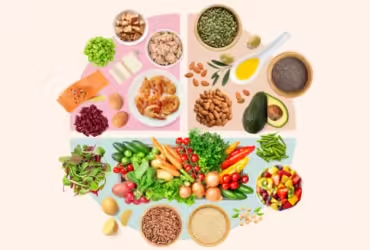

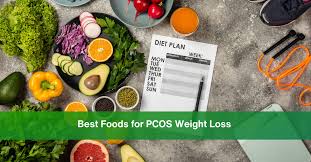



Leave a Reply